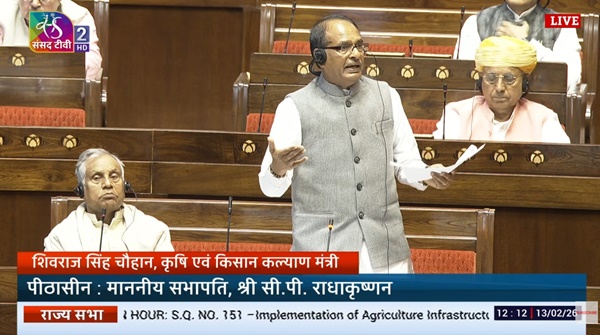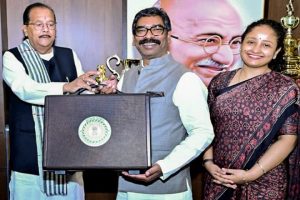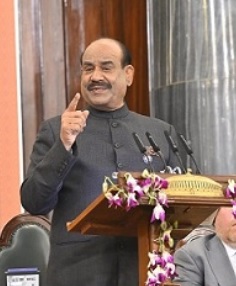Last Updated on August 20, 2025 11:18 am by BIZNAMA NEWS

Sudhir Kumar / NEW DELHI
India’s marine fish production has seen a significant jump, rising from 34.76 lakh tonnes in 2020-21 to 44.95 lakh tonnes in 2023-24. This represents an average annual growth of 8.9%, as reported by Minister of State for Fisheries, Animal Husbandry and Dairying, George Kurian.
A key factor in this growth is the sustainability of India’s fish stocks. According to the ICAR–Central Marine Fisheries Research Institute (CMFRI), a remarkable 91.1% of the 135 marine fish stocks they assessed in 2022 were found to be sustainable.
Government Initiatives for Sustainable Fisheries
The government is actively pushing for climate-resilient strategies to ensure the long-term health of the fisheries sector.
- Research and Development: Research institutes under the Indian Council of Agricultural Research (ICAR) are conducting scientific studies on climate change impacts. This includes analyzing climate trends in major river basins and studying shifts in fish distribution.
- National Innovation in Climate Resilient Agriculture (NICRA): This program is studying wetland fisheries and developing adaptive management strategies for both marine and inland fishing.
- Pradhan Mantri Matsya Sampada Yojana (PMMSY): This flagship scheme is central to the government’s efforts. It promotes sustainable fishing, eco-friendly aquaculture, and marine ecosystem conservation. A major initiative under PMMSY aims to transform 100 coastal villages into climate-resilient hubs, with each village receiving a ₹2 crore investment from the central government.
- Infrastructure and Support: The PMMSY has sanctioned 58 fishing harbors and landing centers at an outlay of ₹3,281.31 crore. It also provides support for cold storage, fish markets, and transportation, with over 27,000 post-harvest transport units approved.
- Training and Awareness: Sagar Mitras are being deployed in coastal villages to help fishers adopt hygienic and sustainable practices. Additionally, the Marine Products Export Development Authority (MPEDA), through its NETFISH initiative, has conducted more than 45,500 training programs to improve seafood quality, reduce post-harvest losses, and boost fisher incomes.
These comprehensive efforts are not only increasing India’s marine fish production but are also strengthening the industry’s resilience to climate change while improving the quality and competitiveness of Indian marine exports.








